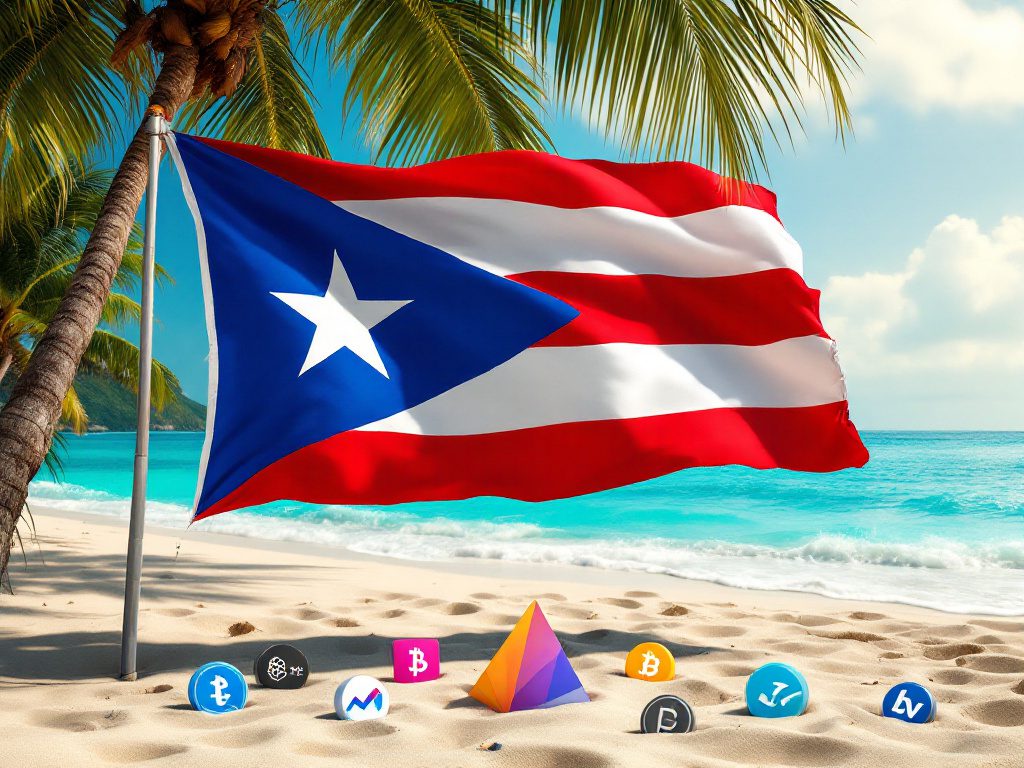Puerto Rico’s Crypto Magnet: Who Wins, Who Loses?
Several years ago, a new face began appearing across the streets of Old San Juan—well-heeled “digital nomads,” crypto tycoons, and YouTube influencers buying up pastel-hued homes and luxury condos with the stroke of a smartphone. Puerto Rico, with its deep history, resilient culture, and hurricane-battered infrastructure, had become an unlikely ground zero for an American crypto gold rush.
Drawn by the promise of severe tax discounts under laws like Act 60, prominent investors—including Pantera Capital’s Dan Morehead, blockchain advocate Brock Pierce, and internet personality Logan Paul—were among those reportedly relocating to the island. Their motivation was clear: while most Americans pay up to 37% on capital gains, certain residents of Puerto Rico enjoyed tax-free profits from their wild swings in crypto wallets. No local or federal taxes. No catch—except for everyone else.
Nearly 40% of Puerto Ricans live below the poverty line, according to the U.S. Census Bureau. As these “blockchain billionaires” poured in, rents soared and neighborhoods transformed. A Financial Times investigation in 2023 spotlighted the outrage of locals pushed from family homes or forced to compete with outsiders for basic services. “It’s like the prosperity is for someone else,” resident Ana Morales told reporters.
This isn’t the first time an American territory has found itself a playground for mainland wealth, thinly disguised as economic investment. The parallels with Hawaii’s land rushes or speculative booms in Miami’s luxury market are hard to ignore. And while investment is critical, who reaps the benefits—locals scraping by, or wealthy transplants seeking a tax shelter?
Democratic Pushback: The Fair Taxation of Digital Assets Act
This week, Democratic lawmakers led by Rep. Nydia Velázquez introduced the Fair Taxation of Digital Assets in Puerto Rico Act. It would fundamentally alter the island’s status as America’s crypto tax haven by requiring digital asset income to be taxed under the same rules as on the mainland. The goal, Velázquez said in a House floor speech, is “to stop billionaires from exploiting Puerto Rico at the expense of its residents.” The legislation would alter the Internal Revenue Code so that digital gains, including from cryptocurrencies, earned by Puerto Rico residents would face both local and federal taxes—a shift projected to recover an estimated $4.5 billion for public coffers between 2020 and 2026, according to the Joint Committee on Taxation.
A closer look reveals the depth of the inequalities. While Act 60 ostensibly attracts outside capital, critics contend that the money rarely circulates locally. San Juan-based economist José Caraballo-Cueto noted in El Nuevo Día, “There’s little evidence that tax-incentivized investors hire local workers or reinvest heavily in the community. The wealth generated from these activities stays in the hands of a small elite while most Puerto Ricans struggle with stagnant wages and rising costs.”
The backlash to these incentives isn’t confined to progressive policymakers. Grassroots groups such as #AbolishAct60 have organized rallies, and a poll by the Center for a New Economy found that more than 68% of Puerto Ricans oppose the current tax policies for foreign investors. Yet, crypto lobbyists and their political allies warn that stricter tax rules could sour essential investment and scuttle job creation on the island.
“Treating crypto gains in Puerto Rico the same as those on the mainland isn’t just fair—it’s necessary if we want to foster real local opportunity instead of imported inequality.”
Beyond that, speculation and confusion have swirled about which investors may actually be targeted. The proposed legislation’s language leaves room for interpretation. Crypto communities on Reddit and X (formerly Twitter) fret over the undefined criteria governing “certain investors,” fueling anxiety and legal debates well beyond Puerto Rico’s borders. This uncertainty, critics argue, may stall legitimate business development even as it seeks to rebalance tax equity.
Political Headwinds and the Future of Puerto Rican Investment
As always in Washington, good intentions meet difficult realities. With Republicans in control of both House and Senate, and much of Congress focused on renewing former President Trump’s 2017 tax cuts, the Fair Taxation of Digital Assets Act faces an uphill climb. GOP leaders frame the bill as an attack on American entrepreneurship—a familiar, if questionable, refrain. Yet polling from Pew Research underscores what’s at stake: just 24% of Americans believe billionaires pay their fair share, and support for closing tax loopholes has climbed as the wealth gap widens.
Puerto Rico’s government, for its part, has responded with a counter-offer. New governor Jenniffer González-Colón’s proposal would extend Act 60’s incentives through 2055 but finally apply a 4% capital gains tax on most digital asset transactions. It’s a modest nod toward equity, yet still a far cry from the rates ordinary mainland Americans face. Whether this compromise will stem the tide of investor-immigrants—or satisfy local grievances—remains to be seen.
Progressive critics argue that piecemeal concessions miss the larger point. The core issue isn’t simply revenue—it’s whether economic policy in Puerto Rico serves the average citizen or perpetuates parallel societies where only the wealthy prosper. Harvard economist Carmen Reinhart observes, “Every time you endorse special tax regimes, you create loopholes big enough for fortunes to escape. Lasting recovery and local empowerment can’t be built on a foundation that rewards absentee billionaires over struggling families.”
History offers stark warnings. Cities and regions that prioritized outside investment above all—Detroit in the 1990s, post-Katrina New Orleans—often wound up with gentrification, social upheaval, and vanishing wealth that left residents disenfranchised. Puerto Rico’s future should not echo those missteps. If the goal is a truly inclusive and just economy, then Congress must empower homegrown businesses, protect affordable housing, and design tax policy for lasting, broad-based prosperity.

